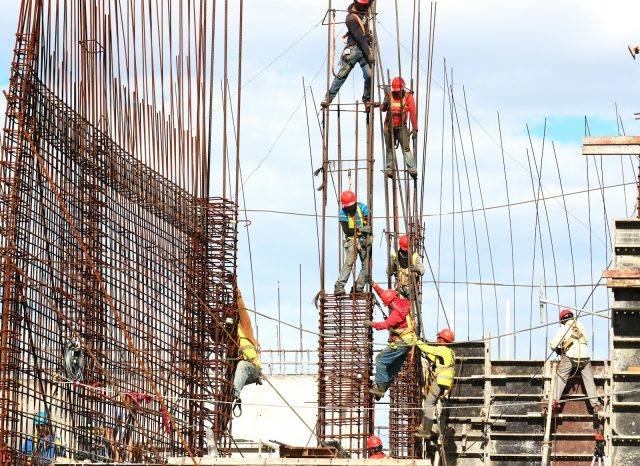
Construction companies all over the country are struggling to fill empty roles, and for a variety of reasons. There are no perfect shortcuts to find ideal candidates instantly, but there are some strategies that can make the process smoother.
How do you accelerate recruiting to fill those empty construction roles?
Why Speed Matters in Construction Hiring
Unlike many other industries, construction operates on strict project timelines where delays can have a cascading effect. A single unfilled position, whether it’s a crane operator, electrician, or project manager, can slow the pace of work across an entire job-site.
In addition, skilled tradespeople are in high demand and may receive multiple job offers, so if your hiring process takes too long, the best candidates will move on. Accelerating your recruitment process helps ensure you can secure the talent you need without compromising on quality, while also helping you achieve your productivity goals in the long term.
Streamlining the Application Process
One of the simplest ways to speed up hiring is to remove unnecessary barriers in the application process. Complicated forms, redundant steps, and lengthy wait times between communication all contribute to losing candidates before they even make it to the interview stage. Consider reducing your application requirements to the essentials while still gathering enough information to assess qualifications. Also, use clear, straightforward job descriptions that highlight not only the role’s duties but also why someone would want to work for your company; the simpler your approach, the better.
Leveraging Industry Networks and Referrals
In construction, word-of-mouth and professional connections carry significant weight, and existing employees, subcontractors, suppliers, and union contacts can all help identify reliable candidates quickly. Implementing a referral incentive program can motivate your current workforce to recommend qualified individuals. The advantage of this approach is that referred candidates often come pre-vetted for both skills and cultural fit, cutting down on the time needed for screening.
Partnering With Specialized Recruiters
General staffing agencies may not always understand the specific needs of construction roles, but recruiters who specialize in the industry can tap into targeted talent pools. These professionals often have access to candidates who aren’t actively job-hunting but would consider the right opportunity. Although working with a recruiter is an added expense, the cost can be justified by reduced time-to-fill and the ability to place skilled workers more efficiently. It’s worth considering if you’re eager to fill your prolonged vacant positions.
Pre-Qualifying Candidates in Advance
One effective long-term strategy is to build a pipeline of pre-qualified candidates; this essentially means maintaining contact with promising applicants, even if you don’t have an immediate opening. Keeping a database of these individuals, complete with verified skills, certifications, and references, allows you to move quickly when a role opens up. You can also hold periodic job fairs or open house events where potential candidates meet your hiring managers, learn about your company, and complete preliminary screenings on the spot.
Embracing Digital Tools for Faster Screening
Modern technology can remove bottlenecks from the hiring process. Video interviews, online skills assessments, and automated scheduling tools make it easier to move candidates from application to decision in less time. These tools are particularly helpful for reaching candidates who may be working on other job-sites and can’t easily attend an in-person interview during business hours. By offering flexible screening options, you expand your reach and increase the likelihood of securing top talent quickly.
Highlighting Career Growth and Benefits
In a competitive labor market, salary alone may not be enough to attract and retain skilled workers. Promoting career growth opportunities, safety programs, and continuing education options can make your openings more appealing. When candidates can see a future with your company, whether it’s moving into supervisory roles, gaining new certifications, or working on high-profile projects, they may be more likely to accept an offer promptly rather than shopping around for other opportunities.
Shortening the Decision-Making Window
An often-overlooked step in faster hiring is how long it takes your internal team to make a decision. If applications sit on a desk for days or weeks before interviews are scheduled, or if final approvals require multiple layers of review, candidates will quickly lose interest. Establish clear internal timelines for reviewing applications, conducting interviews, and making offers. And where possible, empower hiring managers to make decisions without unnecessary delays.
Hiring More Consistently
Accelerating recruiting in construction is about more than filling seats; it’s about keeping projects on schedule, maintaining morale among your crew, and reducing the costs associated with vacancies. By streamlining your process, leveraging industry connections, and making your company attractive to skilled workers, you can secure the talent you need without sacrificing quality. In an industry where timing is everything, your ability to hire quickly can make the difference between a project that runs smoothly and one that faces constant setbacks.










